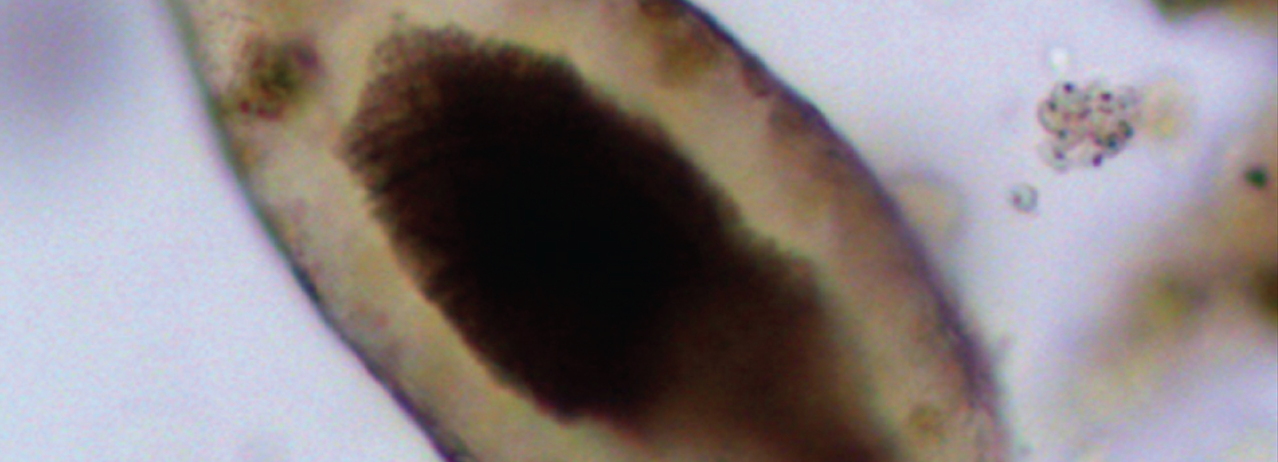New Scientist
Image: Piers Mitchell
The law of unintended consequences may have a longer history than we thought. At a Neolithic settlement in the region where early farmers pioneered crop irrigation systems, a team has found the oldest example of a water-borne disease that today affects 210 million people worldwide.
Schistosomiasis is caused by parasitic flatworms, contracted when humans wade in warm freshwater inhabited by snails that carry the parasite. It can lead to anaemia, kidney failure and death.
A new find from Tell Zeidan, a site in northern Syria, suggests the disease was also a problem in ancient times.
Piers Mitchell at the University of Cambridge and his colleagues examined sediment collected from beneath the pelvises of 26 skeletons, all between 6500 and 6000 years old. In one 6200-year-old sample they found a 130-micrometre-long flatworm egg that belonged to one of the species responsible for schistosomiasis. Read more on newscientist.com…








